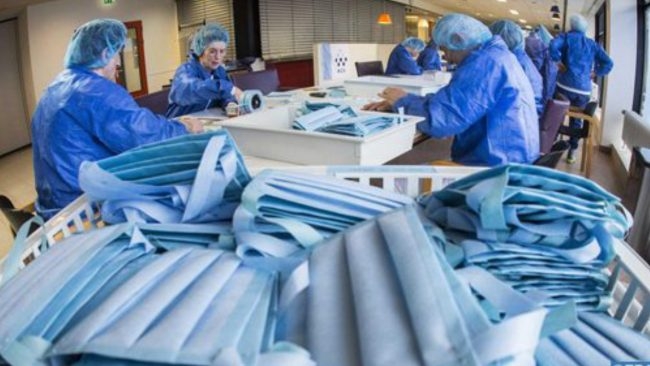Morocco has succeeded where Tunisia seems, for the moment, to fail. With an average of 5 million protection masks produced daily, Morocco has won its battle against the manufacture of these medical equipment and already thinks of export.
“Once the priority need for covered Morocco, our industry will guide part of its export production capacities,” explains the association of Moroccan textilians, saying that the country will soon achieve its self -sufficiency in masks.
The Moroccan example was congratulated in France where the media highlighted the capacities of this country to orient its industry towards making these means of protection. Under the title “The Moroccan example”, the Duck chained recently writes that “there is a country less than two hours by airplane from Paris where the port of mask is compulsory. And where the masks are on sale on the shelves of all supermarkets for the modest sum of 8 cents”. “A price set by the State,” he said.
Under the title “The Moroccan example”, “Le Canard Enchaîné” writes, this Wednesday, April 15, that “there is a country less than two hours of Paris plane where the port of mask is compulsory. And where the masks are on sale on the shelves of all supermarkets for the modest sum of 8 cents”. “A price set by the State,” he said.
This success story will have to inspire Tunisia which is still struggling to produce the first lot of these masks while great suspicions of corruption hover on this operation.
The national body to combat corruption (InlucC) transmitted, Thursday, April 16, 2020, to the prosecutor at the Tunis court of first instance, the file concerning the case of the monopoly of the fabric intended for the making of protective masks as well as all the evidence in its possession so that an investigation is opened on this subject.
As a reminder, the InlucC believes that some businessmen have sought to accumulate large quantities of raw materials for the production of these masks and believes that certain parts have purchased all the quantities available of a specific type of fabric used in the production of reusable protection masks.
After this revelation, Salah Ben Youssef, Minister of Industry denied the report of the INLUCC who pinpoints an official of the State who disclosed the data of the specifications on the manufacture of masks.
However, the InlucC expressed its intention to go to the end of this case by making it known that it is “in possession of serious supporting documents concerning the monopoly of the fabric intended for the making of protective masks”.








